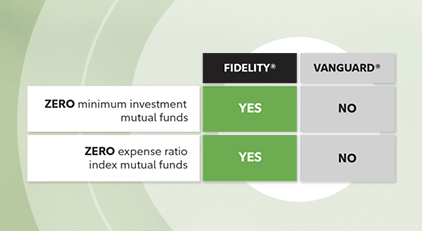What We Offer
Learn More
Mutual fund investing ideas
Become a better investor with investing ideas from our fund managers. These strategies highlight what we see as some of the opportunities to help maximize your potential returns and capitalize on possible market value.
Questions?
- 800-343-3548 800-343-3548
- Chat with a representative
Insights from Fidelity's portfolio managers
Get insights on navigating markets and long-term investing.
We're raising the bar on value
Fidelity has some of the lowest priced index funds in the industry, funds with zero expense ratios, and no investment minimums.1
Explore thematic investing
Fidelity's thematic funds allow you to align your investments with what matters to you.
Invest in companies invested in women
Active management, gender diversity, and Fidelity’s unique research edge. Fidelity's Women’s Leadership Fund.
Make an impact with socially responsible investing
Sustainable investments let you invest in a way that has meaning to you while still reaching your financial goals.
Sector investing: why communication services
Invest in the future of search, social, and streaming video. All in one place.
Beating the benchmark
Active management can help you respond quickly to market changes and help maximize your return potential.
Is your portfolio too local for a global economy?
Take advantage of worldwide growth potential by adding international equities to your portfolio.









